
6 Ways to improve your construction productivity through digitisation
Coming out of a global pandemic, businesses aim flexible to improve construction productivity, efficiency and performance. Now is the time for resilience, reimagination and reform. It’s time to build back better.

Having access to your system at any time and from anywhere is an absolute requirement the ‘new normal’. Here are the 6 benefits businesses see when using an end-to-end business management solution to support their operations and improve construction efficiency:
1. Streamlined business processes for better construction project management
Construction companies handle many processes every day. For larger companies the number of processes to coordinate is even bigger and they often deal with several projects at the same time. Managing projects gets more challenging, communication becomes less frequent and reports out-of-date in an industry with razor-thin margins. End-to-end business software for construction can ease the burden on businesses by streamlining all processes in one solution. This not only saves time and admin costs, but also enables more informed decision making by relying on a single source of the truth. Departments are aligned, communication and data accuracy is improved and the business operations become more efficient. Managing your projects and staying profitable becomes less of a hassle.
2. Improved construction efficiency through up-to-date reports and revenue forecasting
Most construction businesses operate on contractual basis with their customers. The first step of the process is generally bid submission with estimated costs. Bids are normally reviewed and a selection is made based on various factors and most importantly on the estimated costs proposed. With ERP software for construction such as 4PS Construct you can rely on accurate data and clear view on materials, labour, allocation of plant, duration of the project, etc. so that the actual costs do not deviate from the projected ones. Furthermore, through the integrated all-in-one solution, business leaders can easily run PowerBI reports and view key information dashboards to identify potential risks and opportunities at each phase of a project. Thus, you always have full and up-to-date visibility on your predicted costs and margins.
3. Informed decision making
End-to-end business management solution is one of the primary tools for making important financial decisions. Data-driven decision making is necessary today to identify warning signs early, to analyse the situation, identify the best way to tackle it and perform corrective actions. ERP for construction offers powerful insights into your data. You have easy access to dashboards so that you are on top of your projects cost and margins and spot the early signs of potential risks and opportunities. You can drill into the numbers in as much details as you want so that you can tackle any areas of concern in a timely manner.
4. Better construction project planning and scheduling
Each construction phase entails a number of activities from ordering materials to scheduling resources and allocating plant and equipment. All of these need to happen at the right time with minimum wastage and downtime for efficient project progress. If anything goes wrong in planning, the project is exposed to delays and cost overruns which could be disastrous for the company. Using ERP software for construction, you can track, store and analyse data linked to procurement, labour, plant and more. That is essential for ensuring that you don’t pay for plant that you may not necessarily be using, for example, and this alone can generate significant savings over time.
Read blog: Can construction businesses be efficient without an end-to-end software for construction?
5. Integrated solution
The complexity of the industry and the numerous people, suppliers, contractors and other stakeholders involved in the process of construction allow for problems to often remain hidden in a dynamic business with many moving parts. These problems are very often identified only after the project has been completed and the financial damage has already been done.
By adopting an integrated ERP for construction, you would be able to manage your business and many applications, processes and resources from a single platform and in real-time. Thus, by automating most processes to a big extent, the administrative burden can be reduced, and more time can be allocated to building strong customer relationships, maximising sales and optimising resources.
6. Future-proofing
Digital tools are not new to the industry but most of the time businesses rely on disparate tools. They may be fit for purpose and serving well each department but are difficult to link with other systems. This means that there may be discrepancies in the data processed by the different departments and, hence, renders any reports unreliable. ERPs for construction automate the processes, allow for better project cost control, reduce IT costs and unnecessary downtime so that you can stay on time and on budget.
Would you like to know more about what other short- and long-term trends are shaping the construction industry? Take a look at the whitepaper ‘The 7 Industry trends that will help construction to build back stronger’.
-
Share:

About the author
Paul Broderick | Paul has developed a keen eye for seeing specific customer requirements and recommending solutions to deliver business benefits and returns-on-investment. In the last three years Paul has focused this experience and knowledge specifically on the Construction industry, where digitisation is now the hot topic in IT, which has evolved and matured to become most relevant in today’s construction industry.
